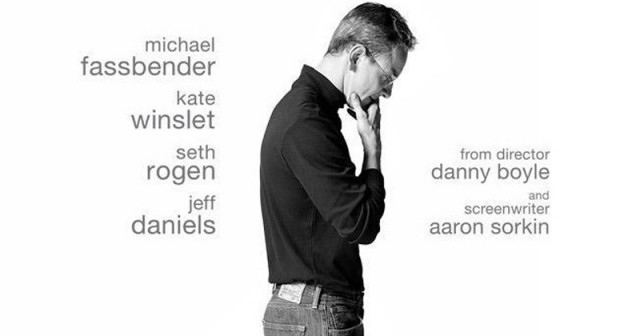Movie Review: Steve Jobs

Directed by Danny Boyle (Trainspotting, 127 hours) and written by award-winning screenwriter Aaron Sorkin, Steve Jobs is an energetic, logically-split film that tries so hard to be great, it ends up being mediocre.
Starting from the acting and characters, not only is Michael Fassbender fantastic as he portrays a non-sugarcoated version of Jobs, one of whose faults is denying paternity until the very last minute, but he also manages to grasp the essence of what—according to the film—Steve was like: an unlikable perfectionist. You are never sure whether you should like him. Of all the characters in the film, he is the most developed, but as with the others, has no real character arc. Just as incredible is Kate Winslet as Joanna who is the only person Jobs actually listens to and can come to terms with; not Scully, not Hertzfeld, not Wozniak (who all deserve a pad on the back for the good work), just her. An honourable mention is Katherine Waterston who effectively plays world’s most annoying character in the role of Steve’s first “love”.
As a film, Steve Jobs is so simply structured it lacks any sophistication. Sure, it has some interesting visual cues: it’s shot with a 16 mm camera for the first act, 35 mm for the second and then goes digital in order to show Steve’s changes throughout. However, due to its structure—divided in three acts for the launches of different products, the film has no arc. An arc is a line whereas Jobs shows just three points. This also goes for the character arcs and is the reason why you cannot get emotionally invested and why it lacks a heart.
When it comes to the music score, it is very reminiscent of that in The Social Network and Steve Jobs in general feels like a David Fincher film. Sadly, it’s not.
With witty, typical Aaron Sorkin dialogue, great acting and captivating visuals, the film falls short of expectations due to its structure and lack of arcs.
This review was originally published on The Arts Lover.
